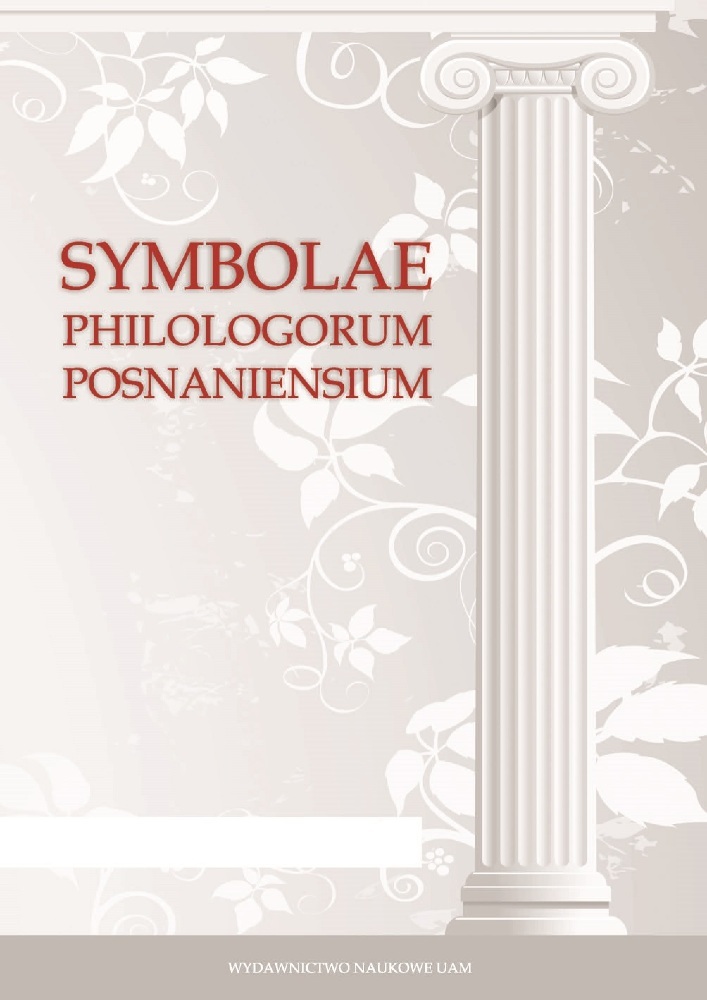Abstract
The aim of this paper is to examine the didactic value of the Attic Nights from the linguistic point of view, and precisely, from the point of view of Gellius’ teachings on the meanings of words. In this context it has been stated that the author makes his readers aware of new meanings gained by certain words when used in contemporary colloquial idiom, describes and interprets the mechanism which had generated those meanings, evaluates the results of the process of semantic change, and, finally, comments on the way some grammarians assess the usage of certain words in ancient literary texts. In effect, the paper concentrates on the passages where A. Gellius, referring to ancient (archaic and classical) literature, describes the semantic differences occurring in various words, depending on their usage, whether in literary or colloquial language, defines the linguistic mechanism giving rise to colloquial variants of different linguistic items, and presents in a critical light the influence of colloquial language on the way in which interpretation is made of particular words as they occur in literary texts.
Literaturhinweise
Primary sources
The Attic Nights of Aulus Gellius with an English translation by John C. Rolfe. 1946–1952. Harvard University Press.
Secondary sources
Cavazza 1986: Cavazza, F. 1986. “Gellio grammatico e i suoi rapporti con l’ars grammatica Romana.” In The History of Linguistics in the Classical Period. Ed. by D. J. Taylor. Amsterdam.
Cavazza 2004: Cavazza, F. 2004. “Gellius the Etymologist: Gellius’ Etymologies and Modern Etymology.” In The worlds of Aulus Gellius. Ed. by W. Holford–Strevens, A. Verdi, 65–104. Oxford.
Marache 1952: Marache, R. 1952. La critique litteraire de langue latine et le developement du goût archaïsant du IIe siècle de notre ère. Rennes.
Maseli 1979: Maseli, G. 1979. Lingua e scuola in Gellio grammatico. Lecce.
Springer 1958: Springer, L. A. 1958. “Aulus Gellius: On Historical and Descriptive Linguistics.” The Classical Journal 59: 121–128.
Lizenz
